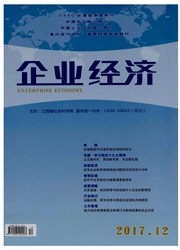

 中文摘要:
中文摘要:
在经济发展“新常态”下,组织必须通过不断创新来获得和保持竞争优势。本文通过建立雇员敌意、差错沟通、情绪管理和员工创新行为的模型来进行实证研究。研究发现:雇员敌意对员工创新行为有显著的负向影响;差错沟通在雇员敌意对员工创新行为的影响过程起着中介作用;情绪管理正向调节雇员敌意与员工创新行为的负向关系,情绪管理通过抑制雇员敌意对差错沟通的负向效应进而弱化雇员敌意对员工创新行为的负向效应。因此,为促进员工创新行为,企业应重视增强员工的自我情绪管理能力、加强引导,并积极营造正向的差错管理氛围。
 英文摘要:
英文摘要:
As the economy enters a "new normal", constant innovation plays an important role in obtaining and maintaining competitive advantages for organizations. This paper carried out the empirical study by establishing a theoretical model of employee hostility, error communication, emotion regulation and employees" innovative behavior. The result showed that employee hostility had a significant negative influence on innovative behavior; error communication mediates the effects of employee hostility and individual innovative behavior; emotion regulation positively moderates the relationship between employee hostility and individual innovative; emotion regulation attenuated employee hostility's direct negative effect on error communication and indirect negative effect on innovative behavior. From this research, we suggest that in order to promote the innovative behavior of employees, enterprises should enhance the employees" ability of self emotion management, give them more guidance, and actively create a positive error management atmosphere.
 同期刊论文项目
同期刊论文项目
 同项目期刊论文
同项目期刊论文
 期刊信息
期刊信息
